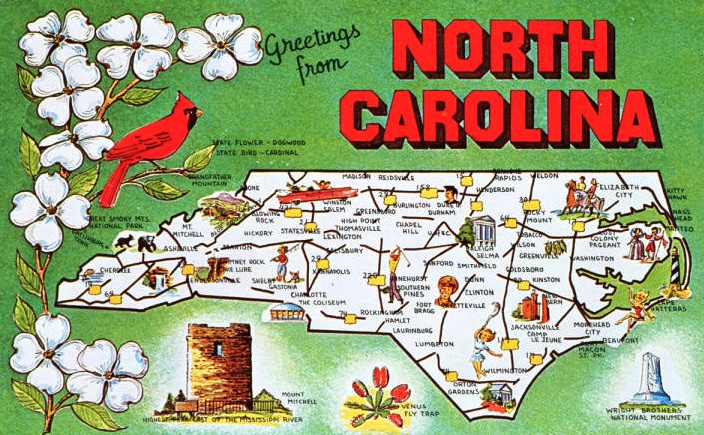A major element of the Civic Switchboard project is to “cross pollinate” the library and civic data networks. We are motivated by the conviction that librarians and civic data intermediaries work in similar spaces and expanding the connection of these networks would be mutually beneficial. So, after the Civic Switchboard team held its first workshop in Atlanta, Georgia, we supported five librarians to stay and participate in the full 2018 spring partner meeting of the National Neighborhood Indicators Partnership (NNIP). (We’ll do a vice a versa after our workshop before the Digital Library Federation Forum this October - check out our Vegas call for participation!)
Did the library cross-pollinators find the NNIP meeting useful? Did they expand networks? Read their reflections and find out!
Michelle Frisque
Chicago Public Library
Chicago, IL
Chicago Public Library (CPL) has a branch in every neighborhood in Chicago and we are very connected to the needs of each community. While we are a large system we are also a city of neighborhoods so we think big but also act small. It is foundational element of our strategic plan to have a branch in each neighborhood. I was glad to hear some talks specifically mention how data intermediaries had collaborated with their local library but I was also surprised how many organizations do not collaborate with their local public library and had not even thought to do so.
I had some really interesting conversation during the presentations, breaks as well at the unconference sessions about CPL’s collaborations and how others could reach out and collaborate with their local libraries. It makes me want to double down on the work we do with civic and city tech to do even more with indicators and promoting this work with our community through the library’s branches.
The NNIP meeting helped remind me that I need to expand my network. There are places I had not thought to make a connection - in particular - the University systems. I was also reminded that there are some groups out there that could help us with our existing research questions.
I am glad that this opportunity was offered. I would never have attended without this project.
Matthew L. Sisk
Hesburgh Libraries, University of Notre Dame
South Bend, IN
Overall, the NNIP meeting was a very positive experience for me. I went in with little expectations other that my civic data partner telling me for years that this was my “tribe” and that I should definitely try to get to one of the meetings someday. The majority of the presentations were interesting and relevant to my own work (a much higher percentage that most other conferences I have attended). In fact, there were many projects presented that aligned extremely well with ones that we are involved in or planning to investigate. Of particular interest were Noah Urban and Data Driven Detroit’s work on understanding residency and rental property locations and April Urban’s award presentation talking about lead exposure reduction in Cleveland.
Beyond the formal presentations, I had several conversations with other researchers working on topics like life expectancy or property conditions. This was really amazing since when you are the sole analytics person for a lot of projects, the minutia and the methods of analysis is not the subject for a lot of conversation. From these conversations, I learned about several new methods and data sources for a variety of projects. I have already taken some of these approaches back to some of the research and community teams that I work with. Most importantly for academic librarians is the overall feeling I got from the meeting that we do not operate outside of our community and that stewarding information about the local region is definitely within the purview of an academic library.
It was extremely rewarding to see other, similar and different, civic data projects happening in other libraries. The work that I am lucky enough to get to do in my center is valued by my colleagues and community, but it can sometimes be difficult to justify all that we do to the library administration. So, seeing examples of other successful library-civic data partnership only makes the case easier. In fact, some of the conversations both at Civic Switchboard and NNIP definitely opened my eyes to some different types of collaborations that I had not considered before. For instance, making better connections with our public library system may end up being more fruitful than I would have thought. We have already started a conversation with their youth engagement team about some outreach opportunities for one of our major projects.
All in all, the NNIP and Civic Switchboard were two of the most rewarding and interesting conferences I have attended in the last few years with work that was directly relevant to projects I am currently doing and a wide variety of future directions!
Jessica Davis
Charlotte Mecklenburg Library
Charlotte, NC
This was an amazing meeting, probably one of the best I’ve ever attended. I didn’t go into the experience with any expectations, as I wasn’t completely sure what the NNIP partners did. However, I knew from the first session this was going to be a great experience shared with like-minded individuals from diverse backgrounds.
Seeing how the different organizations used data to tell a story and solve problems, inspired me to look at how the Charlotte Mecklenburg Library could cultivate this level of strategic thinking here in Charlotte. Everyone I met was very welcoming and after having conversations with them about the initiatives I wanted to implement, I received awesome feedback and affirmation that I was on the right track.
Listening to the presenters discuss reducing poverty, crime, and hopelessness in the underserved parts of the community, gave me a better vision for what could be done here Charlotte.
Charlotte has had huge struggles with race issues, and the session on race relations and issues was eye-opening for me.
The term data literacy was a new one for me, but fit so beautifully into what we could do here at the library. You can’t navigate to a new level, if you aren’t sure of the level you’re currently on. That education of current levels, is what I believe the library can work with UNC Charlotte on. I’m excited about this partnership and what it can grow into, but most of all, I’m over the moon inspired by what it can do for the community I love so much!
Shea Swauger
Auraria Library, University of Colorado Denver
Denver, CO
Participating in NNIP and Civic Switchboard was immensely rewarding for me! It was my first non-library related conference I’ve ever attended and I was pleased to learn how much libraries and NNIP members had in common when it comes to our values. Democratizing data and information, empowering people to use data to make decisions, concerns about community training and assessment, as well as supporting civic engagement are all mutual goals.
After coming back from the conference, I shared with the rest of my library about the partnerships forming in Civic Switchboard, described the one that was blossoming with Shift Research Lab, and then lead a group exercise where I handed out descriptions of local organizations and asked them to brainstorm how we could partner with them in the future. Some of the feedback I got was that they were surprised how much our mission overlapped with these other organizations and taken aback that they’ve never thought of it before. A possible challenge they brought up was skepticism that such efforts would be supported by library administration if anything started costing money. In response, we discussed what kinds of activities and exchanges would be free or low cost. I’m happy to say we came up with many.
One of the things I noticed was that NNIP members were engaging in activities that were almost identical with what libraries were but used different vocabulary to talk about them. Digital scholarship, digital humanities, data literacy, learner-centered pedagogy; these are the terms for activities that many libraries are very interested in investigating, and dare I say funding. I think it would be beneficial for both libraries and NNIP members to start to learn each other’s vocabulary in order to facilitate future conversations and connections.
Lastly, it was refreshing to hear clear institutional commitments to addressing social inequality. Librarianship is currently waging a heated internal professional debate about if libraries are, can be, or should be neutral when it comes to political issues. I am strongly convinced that libraries are not neutral and that we have a responsibility to combat structural inequality, and while there are many librarians who agree with me and continue to push for programs and activities to this end, it is still an unresolved tension. Needless to say, being in a room full a smart people who use data and technology to ask questions and solve problems related to inequality felt amazing.
I firmly believe that my library’s partnership with Shift Research Lab, and the other partnerships that Civic Switch Board is incubating, is an important step towards creating a robust information ecosystem that empowers our community and improves people’s lives. I sincerely appreciate the support and opportunity to join in.
Reginald Constant
Laney Community College
Oakland, CA
My overall impression of the NNIP meeting was positive. Prior to NNIP I did not understand the significance of civic data. A specific interaction that was that left a lasting impression on me was the discussion I had with another cross-pollinator librarian who implemented a civic data toolkit in his instruction. It was extremely helpful talking to someone to gauge the organizational, instructional and technological challenges involved in creating a civic tool kit for use by college students. I shared with my library colleagues the civic databases to which I was introduced at NNIP. Our students are interested in issues of social justice and policy. Integrating these civic databases in our information literacy instruction will help our students further their understanding of the issues that impact their communities. My library is collaborating with a local data intermediary to create and implement a civic toolkit on gentrification and displacement.
Thank you to all of our cross pollinators for their time and effort!
If you have any questions you can get in touch with us on twitter or through email.



